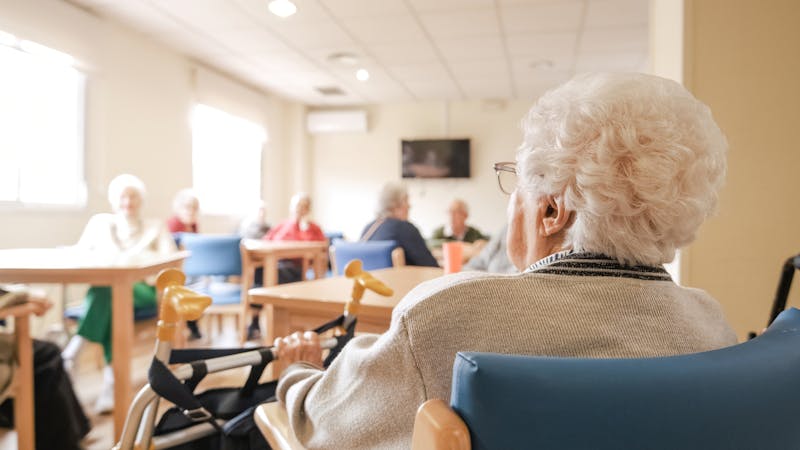
Selecting a nursing home focused on resident safety and respect involves careful research and consideration. Your family member deserves dignity, respect, and quality care during their golden years. When facilities fail to provide safe and respectful environments, it frequently constitutes negligence or abuse.
What Safety Issues Are Concerns for Nursing Home Residents?
Nursing home residents face numerous safety challenges that can significantly impact their quality of life. Recognizing these risks enables you to make informed decisions when selecting a facility. Your understanding of potential dangers can play a key role in protecting your loved one from harm:
- Neglect and Abuse: Without proper oversight or adequately trained staff, residents may be subjected to physical, emotional, or financial abuse.
- Environmental Hazards: Poorly maintained facilities may pose slip and fall hazards, inadequate lighting, or malfunctioning equipment that can endanger residents.
- Medical and Health Concerns: Medication errors, untreated illnesses, or delays in medical care can result in serious health consequences.
Research demonstrates that abuse incidents run rampant in nursing homes and long-term care facilities, with two in three staff reporting that they have committed abuse. These shocking admissions underscore the importance of thoroughly evaluating a nursing home before making a decision.
Choosing the Right Nursing Home for Safety and Compassionate Care
Selecting the right nursing home requires careful research and thoughtful evaluation. Rushing the process or overlooking warning signs can lead to neglect, abuse, or inadequate care.
By taking the time to investigate each facility, you can help protect your loved one from harm and ensure they receive the dignity and quality of care they deserve. These are helpful tips for selecting a nursing home focused on resident safety and respect.
Determine Your Loved One's Needs
Start by carefully evaluating your loved one’s medical, physical, and emotional needs. Nursing homes differ in the level of care they provide, from basic daily assistance to complex medical management. Choosing a facility that cannot meet these needs puts your loved one at risk of neglect or abuse. Identifying their requirements is the first step in finding a safe and appropriate home:
- Daily living assistance requirements
- Medication management needs
- Specialized medical equipment or therapies
- Memory care services
- Social and recreational preferences
Your loved one's needs may change over time, so consider facilities that can accommodate these changes. Ask about their ability to provide increasing levels of care as conditions progress.
Ask for Personal Referrals
Seek input from friends, neighbors, and healthcare professionals who have direct experience with local nursing homes. Word-of-mouth referrals often provide candid insights that marketing materials leave out. These firsthand accounts can reveal both strengths and serious concerns about a facility’s quality of care.
Explore Online Resources
Government and nonprofit websites can be powerful resources for reviewing nursing home quality and safety records. These sources provide objective data to supplement your personal research. Using these tools allows you to compare facilities in your area and identify potential red flags:
- Medicare's Nursing Home Compare website
- State health department databases
- Long-term care ombudsman reports
- Consumer advocacy group ratings
Medicare’s Nursing Home Compare website is a good place to start your research. This website provides quality ratings for each of the nation's approximately 16,000 Medicare and/or Medicaid-certified nursing homes. Each facility is rated from a low of one star to a high of five stars based on three critical areas: health inspection results, quality measures, and staffing levels. An overall rating is also provided.
Keep in mind that online ratings are only a supplement to, not a substitute for, in-person visits and evaluations. Treat these resources as a starting point for conducting a more thorough investigation into each facility.
Visit Facilities Multiple Times
Plan visits at different times of the day and on multiple days of the week. Observing the facility in the morning, evening, and on weekends gives you a clearer picture of daily operations and staffing levels. Pay attention to how staff interact with residents during these different timeframes.
Verify Credentials
Verify that the nursing home holds all licensing and certifications required under Texas law. Verify that administrators and key staff members possess the necessary qualifications for their respective roles. Request to view documentation of these credentials to ensure compliance and accountability:
- Current state licensing status
- Medicare and Medicaid certification
- Administrator and medical director qualifications
- Staff training and certification programs
A reputable facility will readily provide credential information without hesitation or delay. Be wary of any facility that seems reluctant to share these important details.
Review State Inspection Reports
Under the Health and Safety Code (Chapter 242), Texas requires regular inspections of all licensed nursing homes. These reports document violations, corrective actions, and overall compliance with state regulations. Request copies of recent inspection reports for any facility you're considering.
Inspect the Staff-To-Patient Ratio
Sufficient staffing has a direct impact on the quality of care your loved one receives. Inquire about staffing levels during all shifts, including nights and weekends. Compare these ratios to state requirements and industry standards for comparable care levels.
Investigate Health and Hygiene Standards
Tour the facility, paying careful attention to cleanliness and maintenance standards. Observe whether rooms, bathrooms, and common areas appear clean and well-maintained. Strong odors, visible dirt, or deterioration indicate a lack of attention to basic hygiene.
Evaluate Food and Nutrition Services
Request sample menus and observe meal service during your visits. Quality nutrition serves a vital role in maintaining residents' health and well-being. Inquire about accommodations for special diets, food preferences, and cultural or religious dietary needs.
Assess Medical Care and Emergency Protocols
Understand how the facility handles medical emergencies and routine healthcare needs. Ask about on-site medical staff, relationships with local hospitals, and emergency response procedures. Ensure that clear protocols are in place for keeping families informed about any changes in a resident’s health.
Review Contracts and Agreements
Carefully read all admission agreements and contracts before signing anything. Pay special attention to fee structures, services included, and discharge policies.
Moreover, BEWARE of mandatory or forced ARBITRATION CLAUSES. These clauses are often hidden in the fine print of the admissions agreement. Arbitration clauses strip you of your constitutional right to file suit in a court of law and have your case decided by a jury of your peers, in favor of a costly and potentially biased system in which the nursing home picks the Arbitrator who usually renders a binding decision in their favor.
Consider having our nursing home abuse attorney review admission agreements to ensure you understand your rights and obligations before you sign.
Talk to Residents and Families
Speak with current residents and their families to gain insight into their experiences at the facility. These discussions can provide important insights into daily life and the quality of care. Listen for recurring themes in both positive feedback and areas of concern.
Red Flags to Watch Out for When Selecting a Nursing Home
One of the most important tips for selecting a nursing home focused on resident safety and respect is to watch for red flags. Certain warning signs should prompt immediate concern and further investigation. Trust your instincts if something feels wrong during your facility visits. Your intuition, combined with careful observation, can help identify potentially dangerous situations:
- Unexplained injuries or bruising on residents
- Staff reluctance to answer questions
- Restricted visiting hours or supervised visits only
- High staff turnover rates
- Overwhelming odors or visible unsanitary conditions
- Residents appearing fearful or withdrawn
- Missing or expired licenses and certifications
- Consistent complaints from families
Never ignore these warning signs, even if the facility offers explanations. Your loved one's safety depends on selecting a facility that consistently maintains high standards.
Protecting Your Family's Future with Experienced Legal Counsel
Has your loved one suffered harm? When nursing home neglect or abuse affects your family, you need a lawyer who understands these complicated cases and can best advocate for your loved one's rights.
The Law Offices of Glenn W. Cunningham boasts over thirty years of experience, with genuine compassion for families facing these difficult situations. Contact us by phone or online to schedule a free consultation with an award-winning nursing home abuse attorney.
